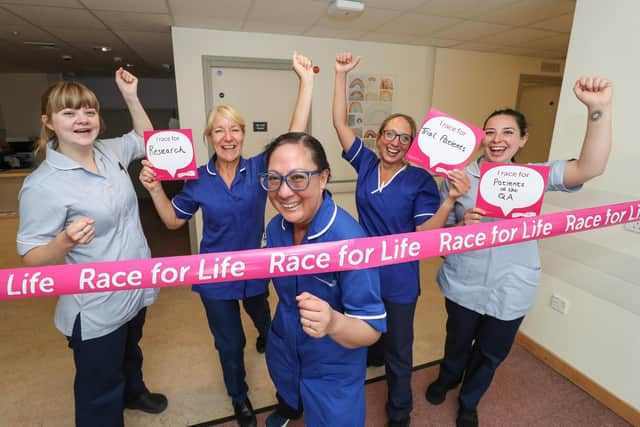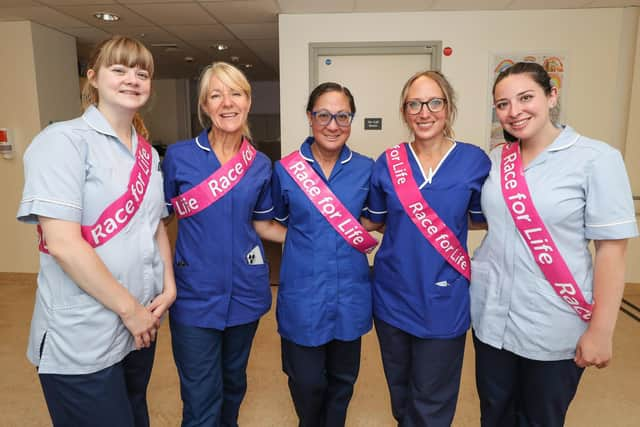QA Hospital’s ‘Swamp Hunnies’ research nurses preparing to get Pretty Muddy in aid of Cancer Research this July
This article contains affiliate links. We may earn a small commission on items purchased through this article, but that does not affect our editorial judgement.
and live on Freeview channel 276
The ‘Portsmouth Oncology Swap Hunnies’ will be taking on Pretty Muddy in aid of Cancer Research UK on Southsea Common this July 2.
Named in honour of team mascot Shrek, the Swap Hunnies are members of QA’s Oncology Research team, which supports patients who are on clinical trials for new cancer treatments.
Advertisement
Hide AdAdvertisement
Hide AdPortsmouth mum-of-two Gemma Dixon is one of seven research nurses taking part.


Gemma, who joined the team last autumn, said: ‘I run the gynaecological trials and my job is to administer new treatments to people, see how efficient they are and to make sure they are safe to use.
‘Our priority is to keep patients safe and well and manage any side effects.
‘But we also record all the trial data in a timely manner so that we can find out how effective that treatment has been and how it may affect their quality of life.’


Advertisement
Hide AdAdvertisement
Hide AdThe Swamp Hunnies have raised almost £1,000 so far, and donations can be made at fundraise.cancerresearchuk.org/team/portsmouth-oncology-swamp-hunnies-posh.
Gemma added: ‘Our patients are amazing because they put themselves out there to help other people who may have cancer in the future.
‘They help us understand so much about how the treatments affect people and by adapting their chemotherapy and routines, we learn a great deal and see a really positive impact in their lives.
‘Then we get to see the long-term data and how that can help people.
‘It makes me proud of our whole team and what we achieve.’

